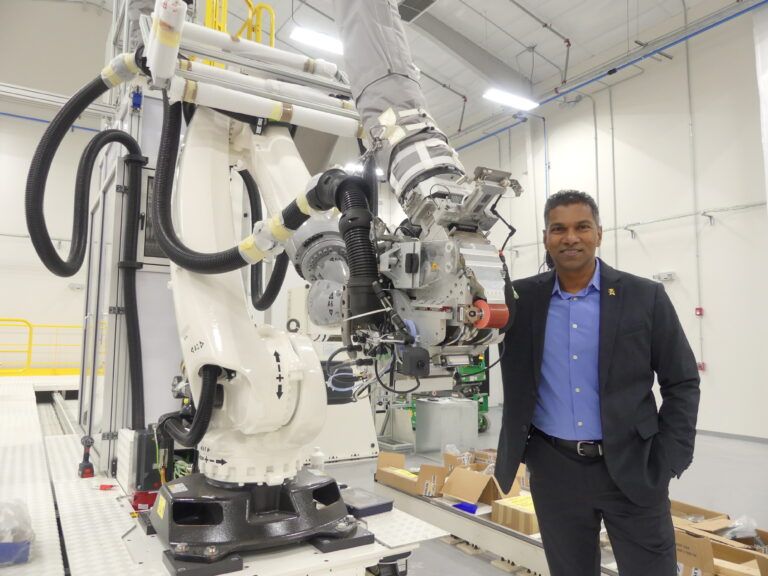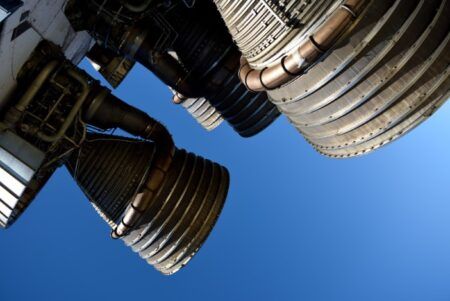The Advanced Technologies Lab for Aerospace Systems (ATLAS) facility exists because we are facing a dramatic challenge in the aerospace industry. Over the next 20 years it is forecasted we will need to produce 40,000 more aircraft to meet global demand, a figure which includes the gradual retirement of the current fleet of 26,000.
Even if we double the size of factories and use the latest and most advanced manufacturing methods, we will still need to be able to find enough qualified people to make all of these aircraft.
The National Institute for Aviation Research (NIAR) at Wichita State University has a US$96 million annual budget, a staff of 600 and nearly one million square feet of laboratory and office space in four locations across the city of Wichita. ATLAS is a US$30 million part of that and is pioneering automated technologies in advanced manufacturing and inspection/testing. It is also providing a pipeline of industry-ready engineers with the correct skills and expertise to operate, program and maintain these machines in the factory of the future.
Launched at the beginning of 2019, ATLAS is a makerspace for automated fiber placement (AFP) and thermoplastics. It truly is an extension of the research and development capabilities of the aerospace industry in the USA. If a supplier wants to test a new material or an entrepreneur wants to develop a prototype aircraft, they can do that on industry-scale equipment at ATLAS and more confidently make investment decisions.
The machinery and equipment at ATLAS is accessible to all on a neutral territory – the facility is designed so different companies can be working in various sectors at the same time.We are partnering with equipment manufacturers like ElectroImpact and Coriolis which provide equipment for major aircraft manufacturers. Our AFP machines can manufacture a single-aisle aircraft fuselage section with advanced materials. Our 4x8m autoclave is the largest in any university in the world and capable of heating materials up to 425°C, with in-situ process monitoring and wireless temperature sensors.
The research we are conducting on in-process inspection coupled with machine-learning algorithm and artificial intelligence means that the machines in the future will produce higher quality parts faster. The manufacturing processes we are developing will allow production lines to become flexible enough to produce different types of urban air taxis and unmanned drones and customize them on-demand.
ATLAS staff is working closely with industry partners to develop ways to increase efficiency, productivity and quality. I’m extremely proud of the diverse network of industrial partners we’ve assembled. In addition to exposing manufacturers to effective new technologies, we are developing training programs to enable companies to rapidly scale these new advanced manufacturing operations across multiple production lines.
As a university entity, we are also committed to creating a pipeline of highly skilled engineers trained in the hardware, software and processes needed in future factories. There is a real need for ATLAS in the USA and I am sure it will prove its value in the coming years.
For further information on ATLAS, go here or contact waruna@niar.wichita.edu





